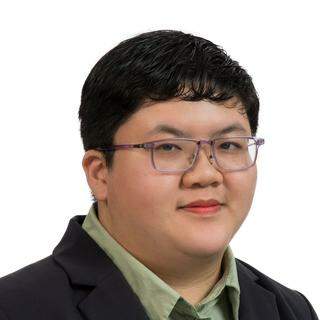Businesses, schools should work together to bridge industry-academia gap: Chan Chun Sing

BUSINESS leaders should work with educational institutions to shorten the loop between industry practices and lessons in schools, said Minister for Education Chan Chun Sing this week.
By having business leaders collaborate with tertiary institutions and share their expertise and experience, they would be able to inspire students to gain new competencies and make Singapore more competitive as a whole.
He urged these companies to consider “adopting” a school and sit on the boards or advisory panels of polytechnics, Institutes of Technical Education and universities, to help “shorten the knowledge cycle from frontier industry practice (and) tighten that with the academia nexus”.
The minister was speaking at a fireside chat at the 38th Singapore Business Awards, organised jointly by The Business Times and DHL and held at The Ritz-Carlton Millenia Singapore.
During his discussion with Christopher Ong, senior vice-president and managing director of DHL Express Singapore, Chan – who was also the event’s guest-of-honour – said the government is working with companies to articulate and aggregate future demand for new skills, particularly in areas where there have not yet been any established trade associations and chambers of commerce.
This could then lead to the institutes of higher learning activating the supply of people with these skill sets that are in demand in the industry.
GET BT IN YOUR INBOX DAILY

Start and end each day with the latest news stories and analyses delivered straight to your inbox.
However, he noted that companies must be willing to accept the qualifications that come with it. “Very often, we fall into this trap of what I call ‘credentialism’, where we look at broad credentials, rather than specific skill sets,” he said.
Going forward, companies should be sharper about the kinds of skill sets and competencies they want from their people, rather than just looking at paper qualifications, Chan added.
“Ultimately, employers must send the signals that we value skills and competencies that are current, rather than just credentials that are outdated.”
When asked how the government and industry can come together to level the playing field for smaller companies, he noted that in the world of business, there will likely “never be a level playing field”.
Although fairness of rules is good, the “peaks of excellence” should not be removed, he added.
Chan offered an alternative analogy: “Instead of a bulldozer (levelling the field), I’d rather have a rocket that can uplift the able and willing.” He added that it is the responsibility of those on this rocket to “pay it forward” and bring the rest along.
On a broader scale, he said that large language models, which refer to models built using artificial neural networks trained via self-supervised learning and semi-supervised learning, have the potential to change the wage structure of Singapore’s economy.
He compared it to the invention of the plough, which brought down the wages of hard labour workers in agriculture.
On the other hand, the relative value of other jobs that cannot be replaced by machines and artificial intelligence (AI) will go up.
He highlighted jobs in care, such as elderly care or childcare, and in the service industry.
In the same vein, he said businesses should equip their people to be smart users of these new technology tools.
“If you can’t beat ChatGPT, better learn how to use it, and use it well,” he said, adding that businesses can use the tools to distil large amounts of information and discern new value propositions.
He brought up an example of architecture design in Temasek Polytechnic, where students are leveraging AI to aid them with creating new designs, using only half the time they previously needed.
The challenge was not in coming up with the new design iterations, but rather in how to frame the questions and prompts when using such tools, noted Chan.
“More importantly, (we should) learn how to ask questions sharply and incisively, in order to use the machines to help us create and generate a breakthrough,” he said.
BT is now on Telegram!
For daily updates on weekdays and specially selected content for the weekend. Subscribe to t.me/BizTimes
Economy & Policy
Daily Debrief: What Happened Today (May 3)
Singapore hotels’ average room rate grows in March; tourist arrivals reach new post-Covid high
Singapore retail sales up 2.7% in March, extending growth
Singapore and Canada to enhance science and technology cooperation
Singapore’s PMI dips in April but remains in expansion for 8th straight month
Daily Debrief: What Happened Today (May 2)
